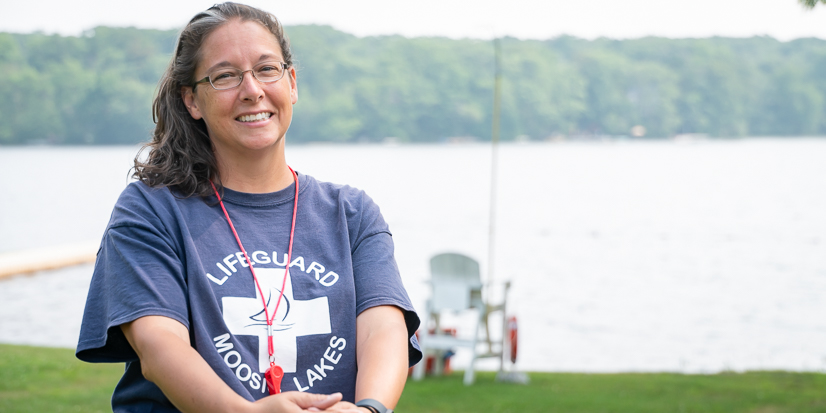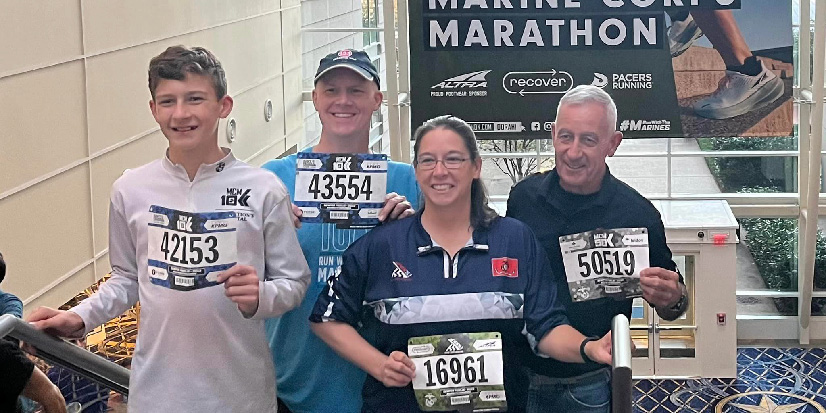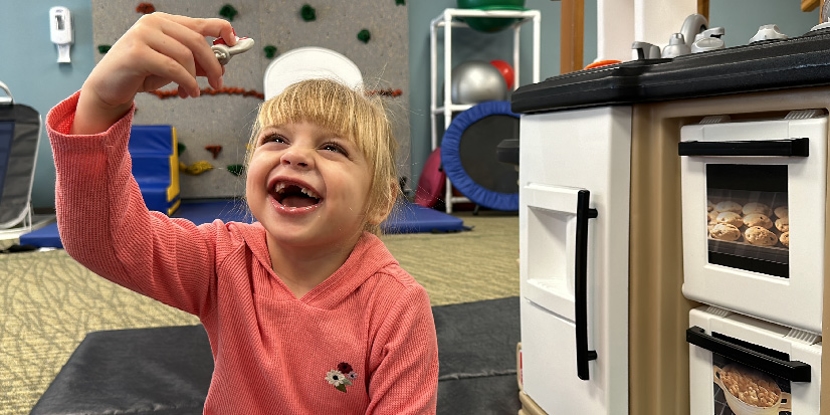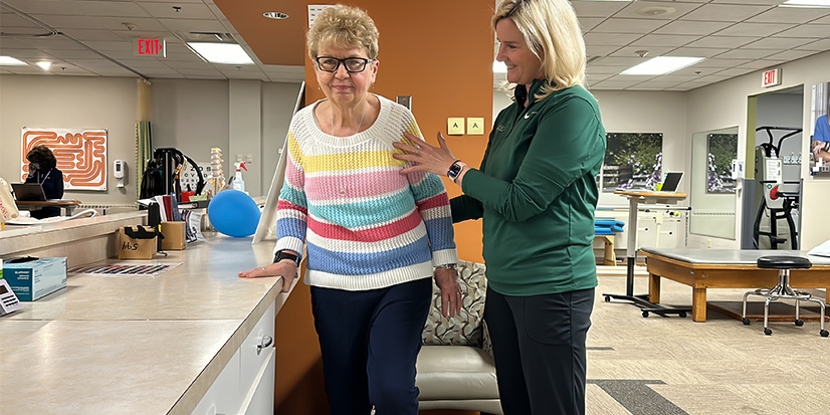When surgery is the right choice: Alison's story
- Author: Alison M
- Date Submitted: Dec 22, 2023
- Category: Spotlights


Some 16 million adults — 8 percent of all adults — experience persistent or chronic back pain, and as a result are limited in certain everyday activities, according to the Georgetown University Health Policy Institute. Alison M of Moosic Lakes is one of those millions living with chronic back pain.
After delaying surgery for years, she finally made the decision to move forward with surgery and the necessary recovery process. Alison shared her experiences, and how she's moving more with less pain. In fact, she has returned to running marathons!
“Before I had surgery, I was just missing out on so much. The pain and weakness I had been experiencing was slowing me down and basically removing me from a lot of the activities in our lives.”
Alison and her family are known for being very active. From family adventures to hiking, Boy Boy Scouts, community campouts, pancake breakfasts, spaghetti dinners, running races, and so much more. In recent years, Alison’s activities were impacted by a somewhat common condition; degenerative disc disease.
Degenerative disc disease can cause pain, weakness, or numbness in the back, arms, and legs. Symptoms vary depending on the location and type of disc degeneration. However, the primary symptoms of degenerative disc disease include sharp and or chronic pain in the back and neck. If the nerves in the spine become compressed, patients may experience weakness in the arms or legs and even numbness in the legs.
Treatment depends upon the severity of the symptoms and whether or not there are any signs that the nerves are involved. For Alison, surgery was recommended, but it was something she put off for a long time.
Living with Chronic Back Pain
“My surgeon and family physician were amazing! They knew surgery wasn’t something I wanted unless absolutely necessary, so we tried everything possible before that. We did one last CT Scan which showed a significant pain generator and it was decided that the surgery was necessary!”
“I admit, I did put it off for too long,” noted Alison. “I let other people’s horror stories about back surgery influence me – and in turn, I delayed my own relief.”
In September 2022, Alison’s surgical team performed a discectomy and spinal fusion with cage placement. A discectomy and laminectomy remove any degenerated or herniated discs and any associated bone spurs that are compressing the spinal cord and or surrounding nerves. Removing the damaged discs makes room for the spinal cord and nerves to move freely in the spinal canal.
In some cases, including Alison’s, the spine can become unstable after the disc is removed. In these cases, the surgeon may perform a spinal fusion to maintain spinal stability and will likely place an interbody cage in the spine. The cage serves as a space holder between your affected vertebrae and allows bone to grow through it, eventually becoming a part of your spine.
The Road to Recovery
After surgery, most patients need physical therapy to help them gain full movement in the affected area and ease their transition to a full recovery.
Physical therapy helps to minimize scar tissue, pain, inflammation, and weakness, address joint stiffness, muscle weakness, and tightness - and identify and treat any issues that may have caused or contributed to spine damage initially. As the patient, Alison’s goals were to return to the fully functional life she had before the chronic pain.
Allison chose to go to Allied Services' Moscow Rehab Center for her rehabilitation; a decision she credits with her remarkable progress and success in recovery.
“My therapists at Allied Services were incredible, and I’m grateful to have had them so close to home. They made me feel strong and confident after my back surgery.”
“Recovery really is the hard part – taking it easy and following orders so you don’t have any setbacks. My therapist worked closely with my surgeon to help monitor my recovery and help me progress.”
Alison did everything by the book and at four and a half months post-surgery she was not only back on her feet, but back to running.
“My first run was 3.5 miles, 1 mile of which was an actual run, but I just wanted to get back out there. I was slow and steady with a mix of run/walk – and I did it pain free!”
Pushing the Limits
Fast forward to just over a year post-surgery and Alison was set to take on the Marine Corps Marathon in Washington, D.C. Alison has run countless foot races. This was her 11th time taking on the race in Washington. Alison and the thousands of other participants faced challenging conditions.
On Sunday, October 29, 2023, Marine Corps Marathon Weekend runners faced unseasonably warmer conditions, leading to a rapid increase in demand for medical support. During the event, local Emergency Medical Service partners advised organizers to close portions of the course earlier than planned and to keep runners on the shortened course.
“Race day was really something this time around. I went in with really no training over the summer due to some other health issues. That should have been the sign not to participate, but I felt I needed to prove to myself - that I could still do it!”

Alison and Family before the Marine Corp Marathon in 2023
“It wasn’t hot but it was very humid that day. I started with the thought, ‘go as far as you can’ and within the first two miles I felt like I was struggling. It was definitely more of a mental struggle than anything this time. As we got further into the race you could tell many were struggling with the humidity, the first aid tents were packed.”
“At mile 25 my awesome Dad stood there waiting for me. He didn’t know about the course closures or the medics being overwhelmed, he just waited for me. We walked that last mile and somehow ran the last quarter mile uphill into the finish together!”
“It was by far the hardest marathon, mentally, for me. Physically, I felt better than I thought I would and my back felt amazing.”
Treatment for Back Pain
At Allied Services Integrated Health System, we understand the physical and emotional toll that back and neck pain can have on your daily life. Our team of experienced medical professionals are highly trained in treating common conditions related to back and neck pain, such as herniated discs, spinal stenosis, sciatica, whiplash, scoliosis, and more.
- Learn more about treatments and locations near you.
- Call 570.348.1360 to get started.



